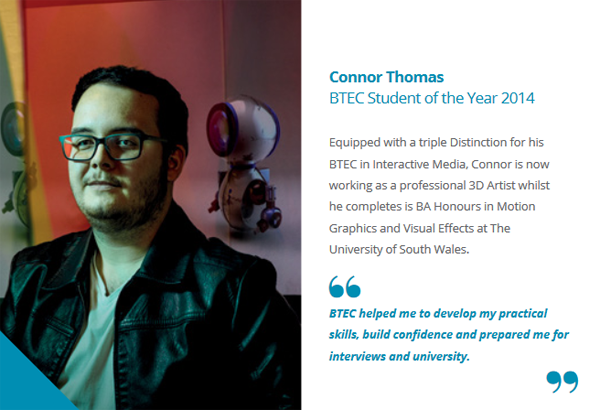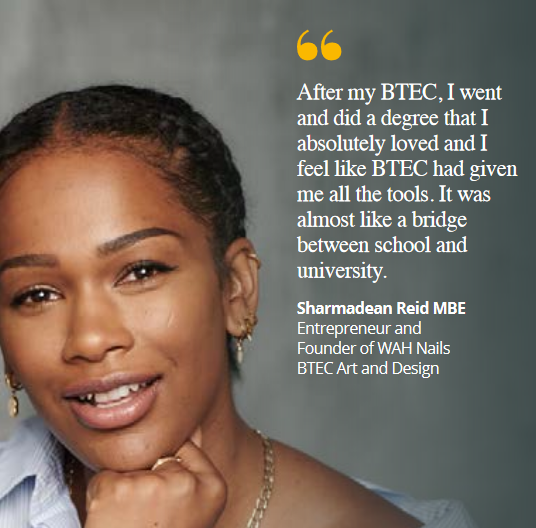Nearly 1 in 4 students getting into university are doing so after studying BTECs. And employers love the practicals skills you can build with a BTEC too. Find out more.
What is a BTEC? It’s an alternative to A levels and GCSEs that gets you equivalent qualifications while you study in a more practical, hands-on way.
You may be wondering what comes next after you’ve done a BTEC. Will employers be overjoyed to see a BTEC qualification on your CV when you start looking for work? Will a BTEC qualification count towards your university application if you choose to do a degree? We’re here to answer your questions and help you make any big decisions you might have about your study, work and life choices.
Can you still go to university with BTECs instead of A levels?
YES. More and more students are applying to universities with BTECs – and they’re getting into top universities to study their chosen degree subjects too.
- The number of students getting into uni with a BTEC and A levels has risen by 300% in the last decade. That’s a big rise in numbers.
- In 2016, nearly 1 in 4 of students who got into uni did so with a BTEC.


If you’re aiming to go into Higher Education, like studying for a degree, you can be confident that your BTEC Level 3 National provides the UCAS points you need for your university application, just like A levels and AS levels do.
You can also choose to progress onto a BTEC Higher National Certificate (HNC). This is equivalent to the first year of university. It’s also the same as doing a Higher National Diploma (HND), which is equivalent to the first and second years of uni, before progressing to the final year of a full degree.
How does a BTEC set you up for the world of work?
Whether you go to university or not, at some point you’re going to want to take off your academic study water wings and dip your big toe in the world of work. Come on in, the water’s fine.
Today’s employers are looking for confident young people with a range of skills and background. They want you to be ready and willing to work when you hit send on your CV. Employers across the UK are crying out for candidates who have the practical knowledge, experience and skills that you can get by doing a BTEC course.
Young people with BTEC qualifications are valued by a wide range of employers, because the BTEC qualifications developed by Pearson are shaped with input from professional bodies, Higher Education experts and employers. That means that employers and universities are both very aware of BTECs and know they’re a qualification that sets you up well for work or further study, whichever life path you choose.
Using BTECs to move up the career ladder
BTEC levels breakdown:
- BTEC levels 1-2 – GCSE equivalent
- BTEC level 3 – A level equivalent
- BTEC levels 4-7 – Degree equivalent
As you can see, you can do a range of BTECs. With a level 3 BTEC you can head straight into the world of work, no extra training or study required. With a higher level BTEC, like a BTEC Higher National Certificate (HNC), you can boost your knowledge of a subject to a higher level of expertise, really working your niche interests. This will be a great help to scooting up the career ladder and getting a managerial or leadership position more quickly.
Whatever option you choose, a BTEC will give you the knowledge and also the confidence to take big strides in your career and go places.
This information was brought to you with support from Pearson, the UK’s BTEC Awarding Organisation.









